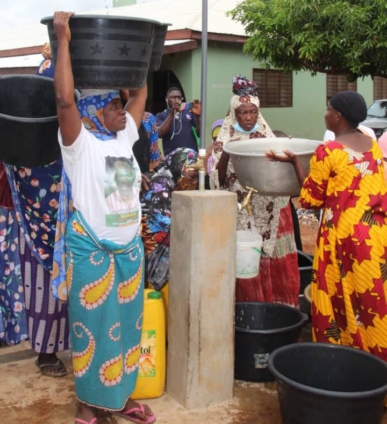Over 300,000 people in some 265 disaster prone communities (DPC) in the northern part of the country have benefited from the Water, Sanitation and Hygiene (WASH) Programme jointly implemented by four United Nation agencies in collaboration with key public sector institutions in the country.
The facilities include the construction of mechanised water supply systems, hand washing facilities, resilient boreholes, toilet facilities, an extension of Ghana Water supply systems among others.
Beneficiaries are from the Northern, Upper East, Savannah, Upper West and North East Regions.
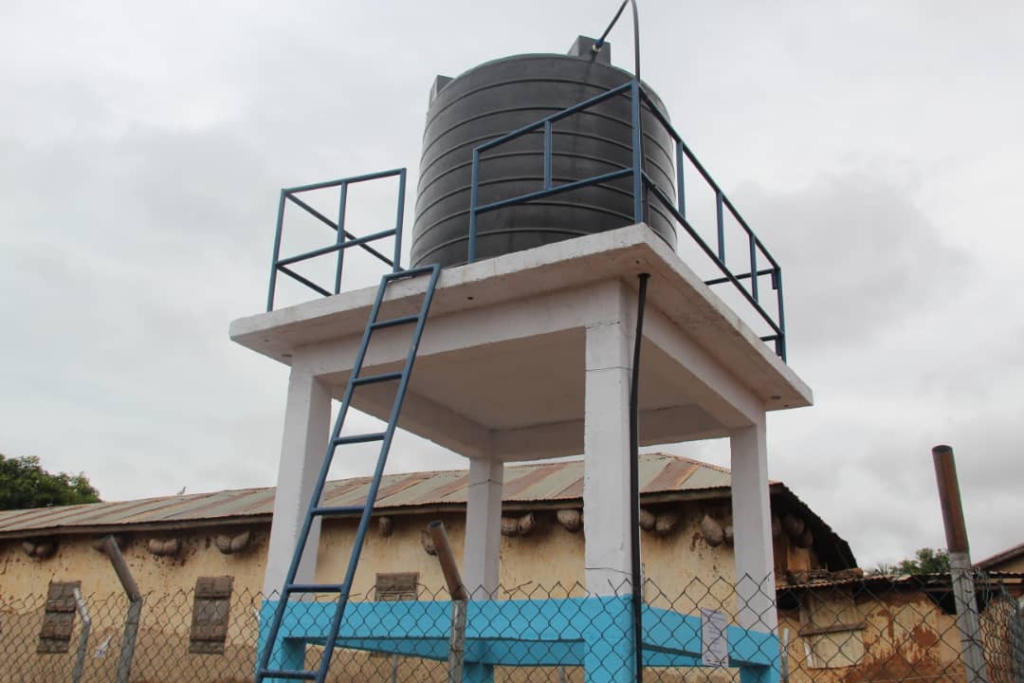
The Water, Sanitation and Hygiene in Disaster Prone Communities (WASH in DPC) project was designed by UN partners – UN-Habitat, UNDP, UNICEF and the WHO to provide flood resilient WASH facilities for communities, schools and healthcare facilities in these communities.
Speaking at the WASH in DPC close-out event in Tamale to reflect on the achievements made since the commencement of the project in 2014, Development Officer at the Canadian High Commission in Ghana, Eric Chimsi said the C$20million grant project was to provide relief and basic disaster mitigation capabilities to people in low-lying communities where flood disasters were a yearly ritual.
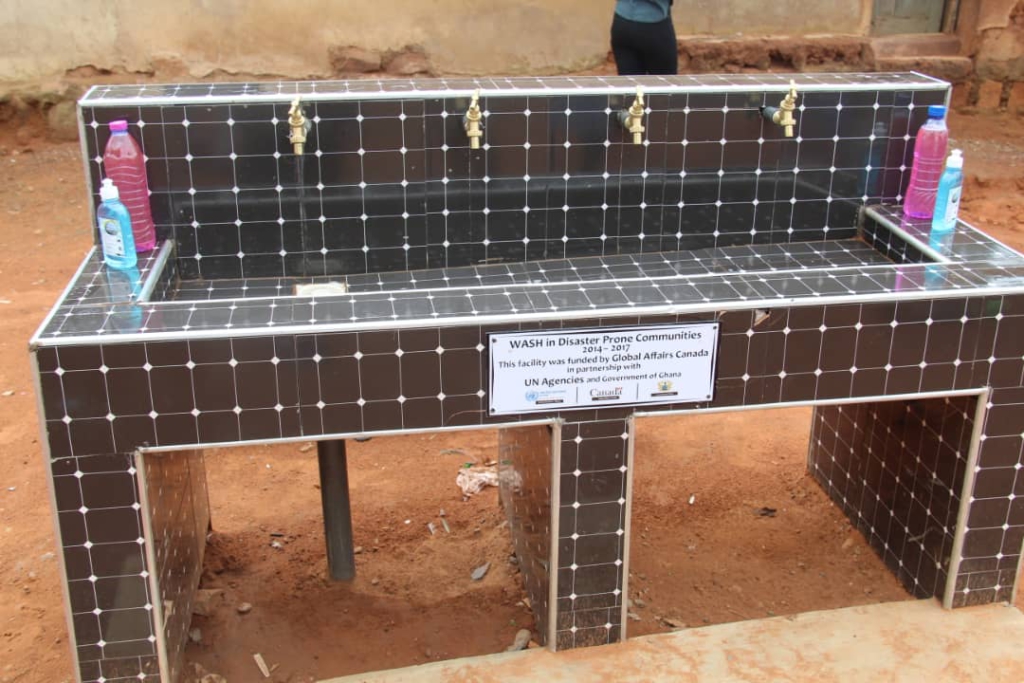
He said it was also to provide social inclusion and universal access to WASH and other essential services.
“Canada’s aspiration is for an inclusive society where everyone’s needs are met irrespective of geographical location, economic status or social standing,” Mr. Chimsi said.
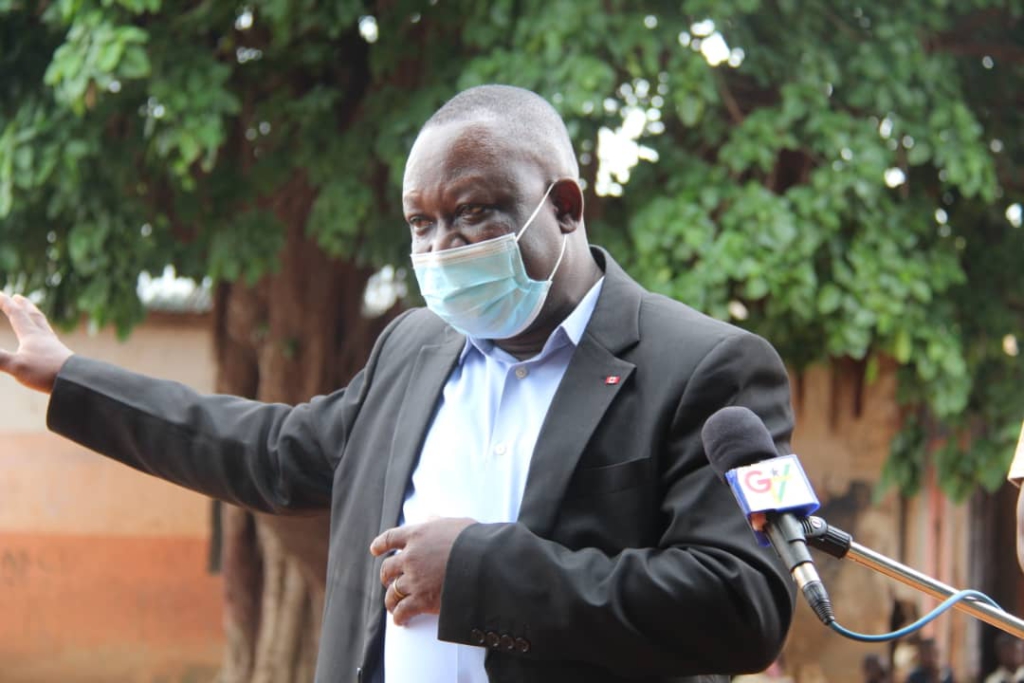
Disaster Response Teams (DRTs) under National Disaster Management Organization (NADMO) according to him, have been trained and provided them with basic search and rescue kits for early warning and rescue mission.
Meanwhile, the Development Officer has urged the government and its agencies responsible for water and sanitation to adopt the flood resilient WASH designs created by UN partners and replicate them in other flood-prone areas.
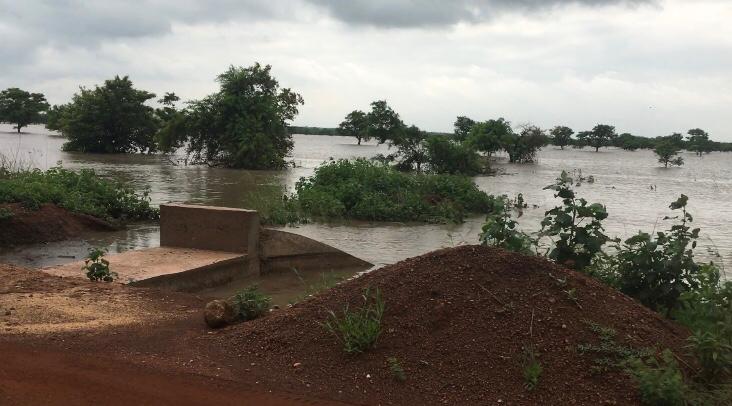
Mr. Chimsi also urged NADMO to continue with the periodic reconstitution and retraining of community-based DRTs for early warning and disaster risk mitigation.
In conclusion, he expressed appreciation to the UN and its partners for the strong cooperation to help achieve what he described as a complex project within the three-year timeline.
Latest Stories
-
Ebenezer Ahumah Djietror appointed as new Clerk to Parliament
10 minutes -
Actress Benyiwaa of ‘Efiewura’ TV series dead
40 minutes -
Ashanti Regional Chief Imam dies at age 74
1 hour -
Africa Arts Network calls for tax reform to save Ghana’s theatre industry
1 hour -
SSTN Ghana Chapter reaffirms commitment to economic growth under new leadership
1 hour -
Inlaks strengthens leadership team with key appointments to drive growth across sub-Saharan Africa
2 hours -
Green Financing: What Ghana’s Eco-startups need to know
3 hours -
CHAN Qualifiers: Amoah confident of beating Nigeria
3 hours -
Governments deprioritising health spending – WHO
3 hours -
Lordina Foundation brings Christmas joy to orphans
3 hours -
Yvonne Chaka Chaka to headline ‘The African Festival’ this December
3 hours -
Nigerian man promised pardon after 10 years on death row for stealing hens
3 hours -
Patrick Atangana Fouda: A Hero in the fight against HIV passes away
3 hours -
MGA Foundation deepens support for Potter’s Village
3 hours -
Galamsey: One dead, 3 injured as pit collapses at Nkonteng
4 hours

